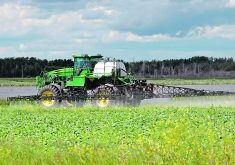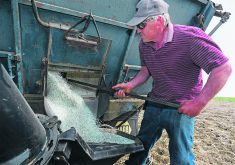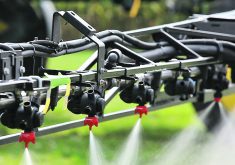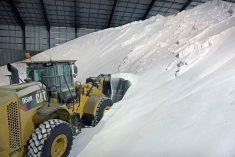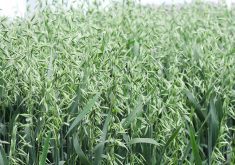Federal budget also added farm equipment to right to repair consultations and temporarily extended interswitching limit
An increase in the interest-free portion of the Advance Payment Program in last week’s federal budget will help farmers deal with upfront costs, said federal agriculture minister Marie-Claude Bibeau.
The proposed increase to $350,000 from $250,000 follows a hike last summer from $100,000.
“This is a program that is very well used and relevant when the interest rates are as high as they are right now,” said Bibeau.
However, it’s unknown when the change will take effect.
Dave Gallant, director of finance and APP operations at the Canadian Canola Growers Association, one of the APP delivery agents, said the change would help farmers save on borrowing costs. The amount of savings would depend on the size of the advance taken and interest rates.
Read Also

Trump’s tariffs take their toll on U.S. producers
U.S. farmers say Trump’s tariffs have been devastating for growers in that country.
“There are several legislative and regulatory steps that will need to occur before this change will come into effect,” he said in a news release.
He said the CCGA plans to notify customers when it can issue advances under the new regulations.
The CCGA said April 3, the first day advances under the existing parameters were available, that it issued more than $300 million to more than 1,500 farmers. Advances are available up to $1 million and the interest-bearing portion is charged at prime less 0.75 percent.
Bibeau said she also wanted to work with all the administering partners and provincial and territorial governments to make sure the federal loan program is used by smaller or younger farmers.
“Historically, it has been used by the bigger farmers more significantly,” she said. “I want to make sure it is accessible.”
The measure will cost Ottawa about $13 million in 2023.
Other budget announcements included a $34.1 million expenditure for eastern Canadian farmers who paid the tariff on imported fertilizer last year. The tariff of 35 percent was in effect from March to June 30, 2022, after Russia invaded Ukraine.
Farmers had called for that money to be returned directly to them but Bibeau said that wasn’t feasible. Instead, the money will go to them via the On-Farm Climate Action Fund to support better nitrogen management practices.
“All the different suppliers across Ontario, Quebec and the Atlantic did not manage the tariff the same way,” she explained. “I had a few conversations with representatives of the grain farmers and the ag sectors and we came to the conclusion that putting this money above the OFCAF was the best mechanism to use because it’s meant to support farmers in their efforts to support the best practices and manage their inputs the best way possible to reduce emissions and be more resilient to climate events.”
The budget also said Ottawa will include farm equipment in right to repair consultations beginning this summer. Bibeau said she often heard farmers say they lacked the ability to repair their own equipment or couldn’t find the parts and she expected this move would be favourably received.
A temporary extension of the 30-kilometres railway interswitching limit on the Prairies is coming later this year as a pilot project.
A finance department official said Transport Canada would make more details available soon and that transfers would “continue to be subject to regulated rates set by the Canadian Transportation Agency.”
The Agricultural Producers Association of Saskatchewan said this measure, along with the $27.2 million for a transportation supply chain office and $25 million to develop transportation supply chain data to reduce congestion and improve efficiency, is good news for prairie grain shippers. These funds are allocated over five years.
The budget for the 2026 Census of Agriculture was set at $57 million for the next five years.
Bibeau said there is $13 million for federal research centres to upgrade their laboratory equipment.
The 2023 budget proposes amendments to the intergenerational business transfer rules that came under Bill C-208 adopted in 2021. It says the rules must be strengthened to ensure a transfer to the next generation has actually taken place.
The documents say there are insufficient safeguards at the moment. The Canadian Federation of Agriculture said it would follow up on these and other topics to make sure they benefit producers.
Meanwhile, the $333 million announced for investments in new solids non-fat dairy, or skim milk, processing is part of the compensation package previously announced for dairy processors affected by trade agreements and lost markets. There is an extra $33 million on top of the $300 million announced in November.
Bibeau said that is money left over from previous programs within the compensation fund and it has been added to this initiative.
The Dairy Processors Association of Canada said it will work with the government to ensure timely disbursement of the funds.




